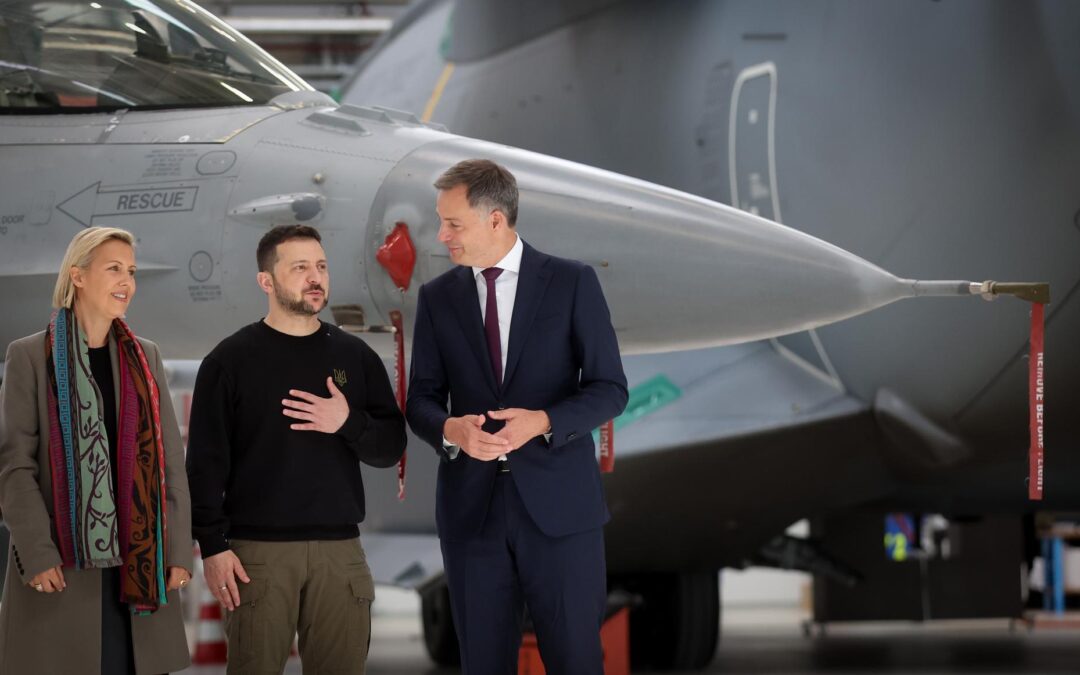Brussels – The High Representative of the European Union (EU) for Foreign Affairs and Security Policy, Josep Borrell, assured this Tuesday that it is up to each member state to decide whether to give Ukraine permission to attack Russian territory with the weapons it has provided to Kyiv.
Borrell explained at the press conference following the EU defense ministers’ meeting held today in Brussels that the meeting discussed “the possibility of lifting restrictions on Western weapons used by Ukrainian forces to target military objectives on Russian territory.”
For Borrell, “it is clear” that it would be “a legitimate action under International Law when used proportionately,” but added that “it is also clear that it is a decision that each member state must make” and that they must assume their responsibility for doing so or not.
“No one can force a member state to lift this limitation on the weapons they are supplying to Ukraine,” he commented after a meeting in which ministers listened via videoconference to their Ukrainian counterpart, Rustem Umerov.
Borrell detailed that “a few weeks ago” some member states did not see it appropriate to lift that restriction and now have decided to give Ukraine permission to attack Russia with the weapons they have donated to Kyiv, but noted that “perhaps others still have reservations.”
NATO Secretary-General, Jens Stoltenberg, who also participated in the meeting today, insisted that Ukraine should be able to use the weaponry that the West has donated to attack targets within Russia, such as missile launchers, artillery, or airfields.
This Tuesday, Borrell did not want to give figures on how many member states have already agreed to allow it to Kyiv.
Belgium prevents Ukraine from using F-16s to attack Russian territory
Belgian Prime Minister, Alexander De Croo, said this Tuesday that the F-16 fighter jets that will be delivered to Ukraine, according to the agreement signed today with his Ukrainian counterpart, Volodymyr Zelensky, can only be used on Ukrainian territory and not to attack Russia directly.
“Everything covered by this agreement is very clear: it is for Ukrainian forces to use on Ukrainian territory,” said De Croo in a briefing with Zelensky.
The Ukrainian president, on the other hand, insisted on the need to obtain permission from his allies to use the military equipment they deliver against Russian territory.
“They are shooting at you and you cannot respond, because we do not have the right to use the weapons. (…) You receive satellite images from your intelligence service but can do nothing to respond, I think it is unfair,” Zelensky pointed out.
“But we cannot risk the support of our allies, that is why we are not using our allies’ weapons to attack Russian territory. That is why we are asking, please, give us permission to do so,” the Ukrainian leader emphasized.
De Croo and Zelensky signed an agreement today in which Belgium commits to militarily supporting Ukraine for the next ten years, with the commitment to deliver 30 F-16 fighter jets by 2028 and with the intention for the first ones to arrive before the end of this year.
Belgium is already part of the coalition to train Ukrainian pilots in handling the F-16s, along with the Netherlands, Denmark, and Norway.
The agreement between Belgium and Ukraine also includes a financial package of 977 million euros in military aid, as well as industrial cooperation in defense matters, support for Ukraine’s Peace Formula, strengthening sanctions against Russia, compensation for damage, justice for the aggressor, use of frozen Russian assets, and economic recovery, Zelensky noted. (May 28)
 go to the original language article
go to the original language article
